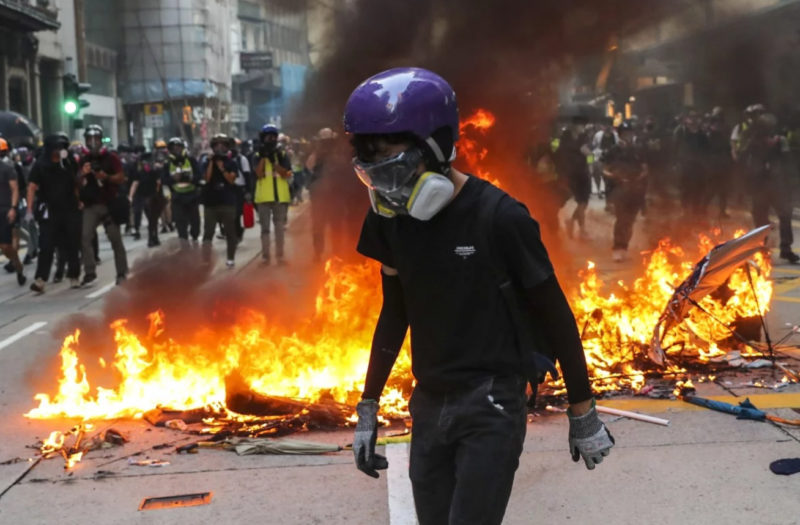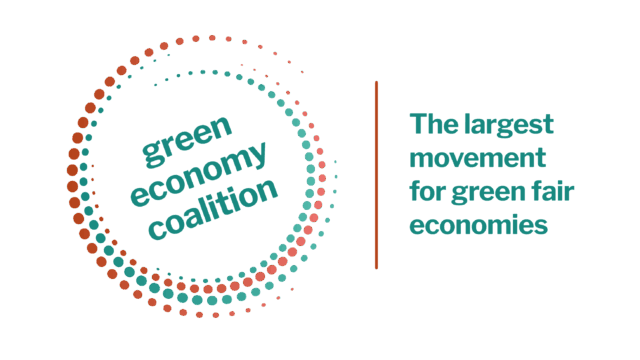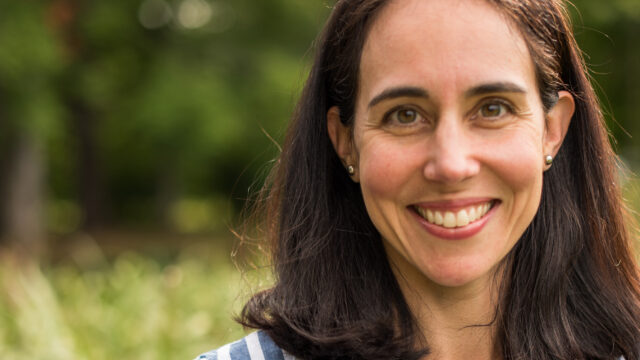Davos & the Joker
Was Davos 2020 the biggest sustainable business conference in history - or just another talking shop for wealthy elites?

Our Convenor Oliver Greenfield, recently returned from our side-event on resetting capitalism at the World Economic Forum in Davos, reflects on the money in the mountains.
My second visit to Davos, and this year, I am not quite as sensitive to the palpable power-posturing. This time I went to truly listen, to seek signs of authenticity in the agenda, and to read the hearts and minds of the attendees.
The event was quickly characterised in the media as a polemic clash between Greta’s doom-mongering and Trump’s everything-is-fine blind optimism. But the conference agenda itself was ambitious, placing the environment crisis front and centre as the main issue of the day, and WEF’s own ‘Stakeholder Capitalism’ as its solution. And for the first time in its history, the top five global risks in the 2020 WEF Global Risk Report were all environmental.
Indeed, you could make the case that Davos 2020 was the single biggest, most powerful and best-attended sustainable business conference in history.
So, the question in my mind as I catch the train up the mountain: Does WEF mean it? Will the attendees act? Because if they do, with their power and money, they can accomplish more change, direct more investment, and innovate more solutions than any government. I want to believe.
The top of the pyramid
But the irony of "stakeholder capitalism" being defined by the world's most exclusive business elite, where an entry ticket for the main WEF conference will set you back $150,000, was lost on most. Indeed, when the WEF grandees opened the event by reminding everyone that stakeholder capitalism was the theme of the very first WEF, back in 1971, the effect was not to underline long-standing authenticity, but instead to draw attention to a dismal half-century of zero implementation.
I want to believe. But what confidence can we have that the elites can be trusted? After all, these are the people - rich, powerful, well-dressed - for whom the current economy is working best. They may acknowledge the need for change, but they will never be the best people to ask about how to radically transform the system.
And trust, or the lack of it, stalks this conference, our economies and our politics like a deadly shadow. The Edelmen trust barometer is stark: “Only one in five feels that the system is working for them, with nearly half of the mass population believing that the system is failing them.” And a major new study published this month finds faith in democracy falling fast around the world.
“ When it comes to social change, mainstream business rarely leads the way. Instead, it responds to societal demand. In the same way, politicians very rarely lead, they receive a public mandate.”
The view from below
We were there to host an event, on the fringe, trying to connect WEF's brand of stakeholder capitalism with economic reform programmes such as the European Green Deal, and the growing wave of social demand for environmental action. I hope we put forward a convincing case that the scale of the climate, biodiversity and inequality challenge is so urgent and so huge, that leadership from all sectors is to be welcomed, and a radical collaboration between them is critical.
However, we also went there to make a more direct point. When it comes to social change, mainstream business rarely leads the way. Instead, it responds to societal demand. In the same way, politicians very rarely lead, they receive a public mandate.
Our conclusion is that underpinning all meaningful change is a profound cultural shift. In this case, a cultural shift that recognises climate, biodiversity and growing inequality as economic failures - failures of such a profound degree that the only logical conclusion is that our dominant economic system is no longer fit for purpose. It can no longer be argued that that self-interest adds up to a benign global rationality - in fact, closer to the opposite is true - and all must wake up to the knowledge that the true invisible hand has always been the beneficence of nature.

To support this cultural shift, and to give its champions the tools to hold governments to account is the role the Green Economy Coalition. In Davos we launched our flagship advocacy tool, the Green Economy Tracker. It is our contribution to a new social contract, defining the transformative policies of an economy that works for all.
On the way home I watched the Joker. A deeply subversive, Oscar-winning film, we are asked to side with a mentally ill murderer, as he takes on an unsympathetic elite, and sparks riots. The film asks an awkward question - who really created this collapse? And that Oscar-nominated insight forebodes a growing truth - society is stretched, trust is low, all sorts of unpleasant mutations of anger are more likely. We need urgently to build authentic bridges now, create radical collaboration – between business, government and society.
Did we get a call from WEF about connecting our people-power economic transformation agenda to help enable stakeholder capitalism, or from a government to help them be bolder, avert doom and transition to rational hope? Not yet. But we shall keep offering.
- Oliver
Photo by Nijwam Swargiary on Unsplash


